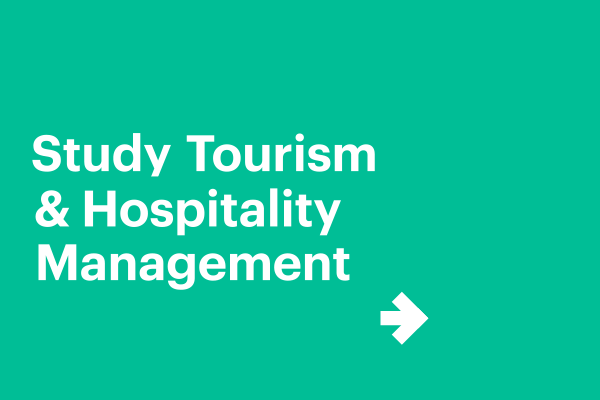Winter is here! Check out the winter wonderlands at these 5 amazing winter destinations in Montana
- Travel Tips

What Is Tourism Managment
Published: December 12, 2023
Modified: December 28, 2023
by Ashil Brookshire
- Plan Your Trip
- Sustainability
Introduction
Tourism is a flourishing industry that encompasses travel, accommodations, attractions, and activities for leisure, business, or educational purposes. As travel becomes more accessible and people’s desire to explore new places increases, the importance of effective tourism management becomes paramount. Tourism management plays a vital role in ensuring the smooth operation, sustainability, and profitability of tourism destinations and businesses.
Tourism management involves overseeing and coordinating various aspects of the tourism industry, including marketing, planning, development, operations, and customer service. It aims to provide a positive and enriching experience for tourists, while also benefiting the local communities and preserving the environment.
In this article, we will delve into the definition of tourism management, discuss its importance, explore the key elements and functions within tourism management, and highlight the challenges and emerging trends in the field.
By understanding the intricacies of tourism management, professionals in the industry can develop effective strategies to attract tourists, optimize the visitor experience, and contribute to the overall growth and sustainability of the tourism sector.
Definition of Tourism Management
Tourism management refers to the practice of planning, organizing, and coordinating all the activities and resources involved in the operation of tourism destinations, businesses, and services. It encompasses a wide range of responsibilities, including marketing, budgeting, development, operations, and customer service, with the ultimate goal of ensuring a positive and fulfilling experience for tourists.
Effective tourism management involves a comprehensive understanding of customer preferences, market trends, and destination dynamics. It requires a strategic approach to attract tourists, create memorable experiences, and maximize the economic and social benefits for the local communities. A successful tourism management plan takes into account factors such as infrastructure, transportation, accommodation, attractions, and local resources.
Tourism managers play a crucial role in coordinating the various stakeholders involved in the tourism industry, including government agencies, tourism boards, hospitality establishments, transportation companies, tour operators, and local communities. They work towards developing and implementing strategies that align with the objectives of all parties and ensure the sustainability of tourism destinations.
Furthermore, tourism management involves maintaining a delicate balance between preserving the natural and cultural heritage of a destination and providing quality experiences for tourists. It encompasses initiatives for environmental conservation, responsible tourism practices, and community engagement. By implementing sustainable measures, tourism managers can create long-term benefits and mitigate any negative impacts of tourism on the environment and local communities.
Ultimately, the goal of tourism management is to create a harmonious relationship between tourists, the destination, and the local community. By carefully examining and managing all aspects of the tourism experience, tourism managers strive to meet the demands of the modern traveler, while simultaneously promoting the social, economic, and environmental sustainability of the destination.
Importance of Tourism Management
The importance of effective tourism management cannot be overstated. It plays a crucial role in the sustainable development and success of tourism destinations and businesses. Here are several key reasons why tourism management is essential:
- Economic Impact: Tourism is a significant source of revenue and job creation worldwide. Tourism management helps maximize the economic benefits by attracting tourists, promoting local businesses, and ensuring the efficient utilization of resources. It stimulates economic growth, enhances employment opportunities, and generates income for the local community.
- Sustainable Development: By implementing sustainable tourism practices, tourism management aims to minimize negative impacts on the environment and culture of the destination. It fosters responsible tourism, encourages conservation efforts, and promotes the well-being of local communities. This ensures the long-term viability and preservation of the destination for future generations.
- Enhanced Visitor Experience: Tourism management focuses on providing exceptional experiences for tourists. It involves careful planning and coordination of attractions, accommodations, transportation, and activities to meet the needs and preferences of different types of travelers. By creating memorable and enjoyable experiences, tourism management fosters positive word-of-mouth recommendations and repeat visits.
- Destination Promotion: Effective tourism management plays a crucial role in destination promotion. It involves strategic marketing initiatives, digital campaigns, and partnerships to attract tourists from different regions. By showcasing the unique offerings of a destination, tourism management helps create a positive image and differentiate it from competitors in the global tourism market.
- Community Engagement: Tourism management actively engages with local communities to ensure their involvement and support in tourism activities. By promoting community participation, respect for local customs and traditions, and equitable distribution of benefits, tourism management fosters a positive relationship between tourists and the local community.
In summary, tourism management is vital for driving economic growth, environmental sustainability, and cultural preservation. It strives to enhance the visitor experience, promote responsible tourism practices, and foster positive relationships between tourists, the destination, and local communities. By prioritizing effective tourism management, destinations can thrive and maximize the benefits of tourism while mitigating potential negative impacts.
Elements of Tourism Management
Tourism management involves various elements that are essential for the successful operation and development of tourism destinations and businesses. These elements encompass the key components that contribute to the overall tourism experience. Here are the main elements of tourism management:
- Marketing and Promotion: This element focuses on creating awareness and attracting tourists to a destination or business. It involves market research, branding, advertising, digital marketing, public relations, and partnerships to effectively communicate the unique selling points of the destination or business.
- Planning and Development: This element involves strategic planning for the sustainable development of tourism destinations. It includes market analysis, infrastructure development, zoning regulations, carrying capacity assessment, and collaboration with stakeholders to ensure the optimal use of resources and development of tourism facilities.
- Operations and Logistics: This element deals with the day-to-day operations and logistical aspects of tourism businesses and destinations. It includes managing accommodations, transportation, attractions, tour operations, customer service, and ensuring smooth operations and seamless experiences for tourists.
- Customer Service and Experience: This element focuses on providing excellent customer service and creating memorable experiences for tourists. It includes training staff, implementing quality assurance measures, addressing customer feedback, and continuously improving the visitor experience to exceed customer expectations.
- Sustainability and Responsible Tourism: This element emphasizes the importance of preserving the natural and cultural heritage of a destination and promoting responsible tourism practices. It involves implementing sustainable measures, minimizing negative impacts of tourism, supporting local communities, and engaging in environmental conservation efforts.
- Economic Management: This element focuses on the financial aspect of tourism management. It involves budgeting, revenue management, pricing strategies, cost control, and financial analysis to ensure profitability and economic sustainability for tourism businesses and destinations.
- Partnerships and Collaboration: This element highlights the significance of collaboration with various stakeholders in the tourism industry. It includes establishing partnerships with government entities, tourism boards, local communities, businesses, and industry associations to foster cooperation, share resources, and work towards common goals.
By addressing and integrating these elements effectively, tourism management can create a well-rounded and holistic approach to the overall management and success of tourism destinations and businesses. It ensures a memorable and sustainable tourism experience for both tourists and the local community.
Functions of Tourism Management
Tourism management involves a range of functions that are essential for the efficient and effective operation of tourism destinations and businesses. These functions contribute to the overall success of the tourism industry and play a vital role in providing a positive experience for tourists. Here are the main functions of tourism management:
- Strategic Planning: This function involves setting goals, formulating strategies, and developing plans to achieve the desired outcomes. It includes analyzing market trends, identifying target markets, and determining the positioning and competitive advantage of the destination or business.
- Market Research: Market research is crucial for understanding customer preferences, market trends, and demand patterns. This function involves conducting surveys, collecting data, and analyzing market insights to develop marketing strategies, identify target audiences, and tailor tourism offerings accordingly.
- Product Development: This function focuses on creating tourism products and experiences that meet the needs and expectations of tourists. It involves identifying unique selling points, designing packages and itineraries, collaborating with local attractions and service providers, and ensuring product innovation to enhance the tourism experience.
- Marketing and Promotion: This function entails creating awareness, attracting tourists, and promoting tourism offerings. It includes advertising, digital marketing, public relations, social media management, content creation, and developing partnerships to effectively reach and engage with target audiences.
- Operations Management: This function deals with the day-to-day operations of tourism businesses and destinations. It includes managing accommodations, transportation, attractions, and activities, as well as ensuring efficient logistics and providing quality customer service to enhance the overall visitor experience.
- Financial Management: Financial management is crucial for the economic sustainability of tourism businesses and destinations. This function involves budgeting, revenue management, pricing strategies, cost control, and financial analysis to ensure profitability and optimize resource allocation.
- Sustainability and Responsible Tourism: This function focuses on environmental conservation, community engagement, and responsible tourism practices. It involves implementing sustainable measures, promoting cultural preservation, supporting local communities, and ensuring the long-term viability of tourism destinations.
- Customer Relationship Management: This function emphasizes building and maintaining strong relationships with customers. It includes managing customer inquiries, addressing feedback and complaints, providing personalized experiences, and fostering customer loyalty through effective communication and relationship building initiatives.
- Partnerships and Collaboration: Collaboration is crucial for the success of tourism management. This function involves establishing partnerships with government entities, tourism boards, local communities, businesses, and industry associations to collaborate, share resources, and work towards common goals for the development and growth of the tourism industry.
By fulfilling these functions, tourism management ensures the seamless operation, sustainable development, and memorable experiences for both tourists and the local community. It is a multifaceted discipline that requires a comprehensive approach to meet the ever-evolving demands of the tourism industry.
Challenges in Tourism Management
Tourism management faces various challenges that can impact the sustainability and success of tourism destinations and businesses. These challenges arise from both internal and external factors and require proactive strategies to overcome. Here are some common challenges in tourism management:
- Seasonality: Seasonality refers to the fluctuation in tourism demand based on the time of year. Many destinations experience peak tourist seasons followed by periods of low or off-peak seasons. Managing seasonality can be a challenge, as it requires finding ways to attract tourists during off-peak times and optimizing resources to accommodate peak season demands.
- Overtourism: Overtourism occurs when the number of tourists exceeds the carrying capacity of a destination, resulting in overcrowding, infrastructure strain, and negative environmental and sociocultural impacts. Managing overtourism involves implementing measures to distribute tourism flows, regulate visitor numbers, and promote sustainable tourism practices.
- Sustainability: Ensuring sustainable tourism is a challenge faced by tourism management. This involves balancing the economic, social, and environmental aspects of tourism to minimize negative impacts and maximize long-term benefits. It requires implementing sustainable practices, promoting responsible tourism, and engaging local communities in decision-making processes.
- Competition: The tourism industry is highly competitive, with destinations and businesses vying for the attention of tourists. Managing competition requires differentiating the destination or business through unique offerings, effective marketing strategies, and continuous innovation to attract and retain visitors.
- Changing Consumer Behavior: Consumer behavior and travel preferences are constantly evolving. Tourism management needs to adapt to these changes by understanding emerging trends, catering to different market segments, and providing personalized experiences. This requires staying updated with technology advancements, digital marketing strategies, and consumer insights.
- Economic Volatility: Tourism can be impacted by economic factors such as recessions, exchange rate fluctuations, and political instability. These factors can influence travel decisions, tourist spending, and business operations. Tourism management needs to develop strategies to mitigate the effects of economic volatility and attract tourists during challenging times.
- Infrastructure and Resource Management: Adequate and well-maintained infrastructure is crucial for the smooth operation of tourism. However, managing limited resources, ensuring sustainability, and maintaining infrastructure can be challenging. Tourism management needs to prioritize infrastructure development, enhance resource management, and strike a balance between tourist needs and environmental conservation.
- Technology Disruptions: Rapid advancements in technology impact the tourism industry. Online platforms, social media, and mobile applications have changed the way tourists research, book, and experience travel. Tourism management needs to leverage technology to enhance marketing, distribution channels, customer service, and overall tourism experiences.
- Crisis Management: Tourism destinations are susceptible to natural disasters, political unrest, health crises, and other unforeseen events. Crisis management is crucial in ensuring safety, communication, and recovery. Tourism management should have contingency plans, crisis communication strategies, and cooperation with authorities to effectively manage crises.
Overcoming these challenges requires proactive and strategic approaches in tourism management. By addressing these issues, tourism destinations and businesses can thrive, deliver exceptional visitor experiences, and contribute to the sustainable development of the tourism industry.
Emerging Trends in Tourism Management
Tourism management is constantly evolving to adapt to changing market dynamics, consumer preferences, and technological advancements. Here are some emerging trends in tourism management that are shaping the future of the industry:
- Sustainable Tourism: The increasing emphasis on sustainability has led to a rise in sustainable tourism practices. Travelers are seeking eco-friendly and socially responsible experiences. Tourism management is embracing sustainable initiatives such as reducing carbon emissions, promoting local sourcing, and supporting community development.
- Authentic Experiences: Tourists are increasingly looking for unique and authentic experiences that provide a deeper connection with the destination and its culture. Tourism management is focusing on curating immersive activities, cultural interactions, and off-the-beaten-path experiences to meet these demands.
- Technology Integration: Technology continues to revolutionize the tourism industry. Tourism management is leveraging technologies like virtual reality, augmented reality, and artificial intelligence to enhance the booking process, improve customer service, and create engaging marketing campaigns.
- Personalization: Personalization is gaining prominence as tourists seek customized experiences tailored to their preferences. Tourism management is utilizing data analytics and customer relationship management tools to segment markets, target specific demographics, and deliver personalized recommendations and offers to travelers.
- Wellness and Health Tourism: Wellness and health tourism have witnessed significant growth. As people prioritize their well-being, tourism management is incorporating wellness activities, spa treatments, yoga retreats, and healthy dining options into destination offerings.
- Community Engagement: Tourism management is recognizing the importance of involving local communities in tourism development. Engaging with local residents, empowering them economically, and showcasing their culture and traditions contribute to sustainable destination management.
- Multi-Generational Travel: With families traveling together, tourism management is focusing on catering to the diverse needs of multi-generational travelers. Destinations are offering a variety of activities and accommodations suitable for different age groups and interests.
- Sharing Economy: The sharing economy has disrupted the traditional tourism industry. Tourism management is adapting by collaborating with sharing economy platforms, integrating home-sharing options, and exploring new business models to meet the evolving demands of travelers.
- Destination Marketing through Influencers: Influencer marketing has become a powerful tool in tourism management. Collaborating with social media influencers to create authentic content and promote destinations has become an effective way to reach and engage with target audiences.
- Accessible Tourism: The focus on inclusivity and accessibility has led to the growth of accessible tourism. Tourism management is ensuring that destinations, accommodations, and attractions are accessible to people with disabilities, providing equal opportunities for all travelers.
These emerging trends are reshaping the tourism industry and presenting new opportunities and challenges for tourism management. By embracing these trends, tourism destinations and businesses can stay competitive, attract a wider range of visitors, and deliver exceptional experiences in the ever-changing landscape of travel and tourism.
Tourism management plays a crucial role in the successful operation, development, and sustainability of tourism destinations and businesses. It encompasses various elements and functions that aim to create exceptional experiences for tourists while considering the economic, environmental, and social impacts of tourism.
Throughout this article, we have explored the definition of tourism management, its importance, key elements, functions, challenges, and emerging trends. It is evident that effective tourism management is essential for driving economic growth, preserving natural and cultural heritage, promoting responsible tourism practices, and enhancing the overall visitor experience.
However, tourism management also faces challenges such as seasonality, overtourism, sustainability, competition, and changing consumer behavior. These challenges require proactive strategies and innovative approaches to ensure the long-term success and development of tourism destinations.
At the same time, emerging trends in tourism management, including sustainable tourism, personalization, technology integration, and wellness tourism, present new opportunities for growth and innovation within the industry.
In conclusion, tourism management is a dynamic and evolving field that plays a vital role in shaping the tourism industry. By effectively managing tourism destinations and businesses, tourism managers can create positive synergies between tourists, the destination, and local communities, fostering economic growth, environmental preservation, and cultural enrichment.
With the constantly evolving landscape of travel, it is imperative for tourism managers to stay updated with the latest trends, embrace sustainable practices, leverage technology, and engage with diverse stakeholders. By doing so, tourism management can contribute to the growth and sustainability of the tourism industry, creating unforgettable experiences for travelers while fostering a positive and responsible approach towards tourism.

- Privacy Overview
- Strictly Necessary Cookies
This website uses cookies so that we can provide you with the best user experience possible. Cookie information is stored in your browser and performs functions such as recognising you when you return to our website and helping our team to understand which sections of the website you find most interesting and useful.
Strictly Necessary Cookie should be enabled at all times so that we can save your preferences for cookie settings.
If you disable this cookie, we will not be able to save your preferences. This means that every time you visit this website you will need to enable or disable cookies again.
The magazine of Glion Institute of Higher Education
- Master the art of becoming a tourism manager

If you love to travel and find yourself constantly organizing every detail of your next adventure, have you ever considered turning your passion into a career in tourism? Being a tourism manager might be ideal for you. This profession goes beyond just booking flights and accommodations, and is a vital role in the hospitality industry . It requires strategic planning, strong interpersonal skills, extensive knowledge of destinations, and business acumen to create unforgettable experiences while also generating profit.
What Is a tourism manager?
Tourism managers, also known as travel or destination managers, have a wide range of responsibilities. They handle tasks such as event coordination and administrative work to promote local attractions and organize trips. With their passion for tourism and natural leadership abilities, these individuals have the expertise to develop strategic plans that promote local businesses within the industry. As tourism managers, they work tirelessly to raise awareness of destinations through effective marketing campaigns and ensure fantastic guest experiences .
Planning and developing tourism programs
A vital responsibility of a tourism manager is to create appealing tour packages that specifically cater to the desired customer group. This involves collaborating with hotels, organizing transportation logistics, and even planning on-site activities that enhance the overall tourist experience.
Marketing and sales
Part of a tourism manager’s role is to have significant influence in local area promotions, strategically devising and executing marketing campaigns to attract potential visitors. This can involve initiatives such as partnering with local businesses for promotions, showcasing appealing destination imagery on billboards, or even organizing starter packs for first-time visitors.
In addition, they are also responsible for driving sales by directly contacting large travel agencies or corporate travel managers who handle bulk bookings.
Operation management
A successful tour requires the careful and detailed operational management of a skilled tourism manager. Their role is to ensure that every aspect of the customer experience, from booking tours to their completion, is seamless and problem-free. The ability to handle crises and unforeseen circumstances, such as unsettled weather or unexpected closures, is crucial.
Customer service
Customer service plays a vital role in the field of tourism operations, which is primarily focused on providing services. Tourism managers must actively address customer inquiries and complaints, ensuring that clients are always satisfied to the fullest extent possible.
Skills and qualifications needed for a tourism manager
Before pursuing a career as a tourism manager, it’s important to understand the specific skills and qualifications that employers typically seek in candidates. There are various avenues for acquiring these skills, such as pursuing formal education through a degree in tourism management, participating in online courses, gaining practical experience through internships or mentorship programs, or even self-directed learning.
Inherent abilities
There are a wide range of soft skills and inherent abilities that can give you advantages in this field, such as:
- Strong communication skills: This is an absolute necessity as you’ll constantly interact with clients, stakeholders, team members, and vendors.
- Detail-oriented: Whether planning travel itineraries or dealing with complex contracts, attention to the tiniest aspect ensures everything runs smoothly.
- Problem-solving: Being resourceful to promptly resolve any issues increases client satisfaction levels dramatically.
- Cultural sensitivity : You’ll encounter people from diverse cultures and need to know how to cater to their needs appropriately.
Professional skills
Equally important are professional skills either acquired on-the-job or through training in an undergraduate program in tourism. You can gain these through entry-level roles or professional internships, and they include:
- Project management: Includes organizing events or tours within budgets while meeting customer expectations.
- Client relationships: Building lasting relationships contributes enormously to business sustainability.
- Marketing and sales: Promoting services persuasively helps ensure business profitability.
Plan the journey of your life
Discover your place in the exciting world of tourism management with our degree that blends essential knowledge with the practical skills for success.

Types of employers who hire tourism managers
As a tourism manager, you can expect to find a variety of potential employers in different sectors related to travel and hospitality. This diversification ensures that multiple avenues are available for you to explore in your career path. The main industries where you’ll find tourism management jobs are:
- The hotel industry
- Corporate firms that need someone to manage employee travel
- Travel agencies
- Government agencies tasked with boosting tourism
Job search tips for becoming a tourism manager
With a focused approach, you can increase your chances of landing a coveted tourism manager position. Below are some tips to help jumpstart your search.
- Craft a compelling resume and cover letter: Your resume should succinctly present your level of experience and qualifications; specifically tailored to highlight how you fulfill the job description for a tourism manager. A cover letter goes hand-in-hand with your resume, explaining why you’re passionate about working in tourism sectors and making clear points as to why you’d excel in the role.
- Leverage your network : Approach professionals within this industry whom you already know could have valuable insights or contacts that can steer you towards corporate travel manager jobs or similar positions.
- Online job platforms: Regularly check major online job platforms. This is where employers post vacancies for roles like tour managers. Salary depends significantly on factors such as hands-on experience and location, so be mindful while researching these opportunities.
- Attending industry events: Networking events can offer numerous chances to meet potential employers directly.
Education requirements for becoming a tourism manager
A minimum requirement for most corporate travel operations positions is an undergraduate degree. While it doesn’t necessarily have to be in tourism management specifically, degrees in related fields like hospitality management, business administration, or marketing can also be advantageous. However, having a deep understanding of the industry is highly beneficial, so many hiring organizations prefer candidates with degrees in travel or tourism management, especially if this includes tourism internships. If you are aspiring for higher positions in hotel management or considering becoming a travel manager, pursuing advanced hospitality degrees is worth considering.
If you want to advance your career, it’s essential to prioritize continuous professional development. This involves staying updated on market trends, attending workshops, and taking refresher courses. These activities should be at the core of your lifelong learning plan.
Aim for the top in tourism
Learn with leading industry professionals, take advantage of networking opportunities and expand your skills in prestigious placements with our Master’s degree.

Career paths for tourism managers
In tourism management, there is a range of career options that you could consider. Whether you enjoy history and culture and would like to organize historical tours, or if corporate travel management is your forte, there’s ample scope to explore diverse career opportunities.
Here are some of the intriguing doors that could open as you venture into this field:
- Destination manager: Primarily associated with destination management companies (DMCs), your responsibilities might encompass managing relationships with accommodation providers and entertainment venues.
- Corporate travel manager: These types of travel manager jobs involve planning corporate retreats or conferences, upholding policy adherence, budget control, risk assessment, and demonstrating a high degree of commitment to client satisfaction.
- Tour operator: Tourism organization is a good choice for those who thrive on interaction. As part of tourism and travel jobs in this category, you’d lead groups through travel programs designed by yourself or your employer, seizing every opportunity to enrich guest experiences.
Advantages and disadvantages of being a tourism manager
A career in tourism management has both advantages and disadvantages. Starting with the positive aspects, here are some benefits:
- Wide horizons : One of the major perks associated with tourism or corporate travel manager jobs is the opportunity it provides to explore various cultures and destinations through work.
- Diverse networking: You’ll meet individuals from all walks of life, boosting your professional and personal growth.
- Skills enhancement: A role such as this demands constant evolution. You can learn new languages and find out more about a range of countries and cultures.
- Fulfillment : Creating memorable experiences for guests can be hugely satisfying.
Despite the rewarding attributes of tourism and travel jobs, there can be challenging elements, such as:
- High pressure: Managing varying expectations in unpredictable circumstances like changing weather conditions can be stressful.
- Demanding hours: Tour planning might require weekend commitments and extended hours especially during peak holiday seasons.
- Customer difficulties: Regardless of how professional you are in managing services, encountering difficult customers remains inevitable.
Industry trends impacting the role of a tourism manager
Change is a constant in the tourism industry, and it is essential for both aspiring and established managers to be aware of and understand the trends that are shaping their role. Factors such as technological advancements and changes in consumer behavior have significantly impacted the responsibilities of a tourism manager. By staying informed about these trends, managers can adapt their strategies effectively.
Important trends to be aware of:
- Sustainability should take center stage
- Experiential travels are gaining popularity
- Digital transformation is becoming unavoidable
- Wellness-based trips are proliferating
These factors are likely to continue shaping the industry in the future. Gaining knowledge about these trends will better equip you to take on leadership positions within your organization and make a more meaningful contribution. Read more about hospitality trends in 2023 .
Best practices for working as a tourism manager
With increasing global mobility, the role of a tourism manager has become even more in demand. To succeed in this competitive field, it’s important to follow certain best practices that can shape your work ethic.
Stay current with trends
It is crucial to stay current and on-trend in the travel industry. This means being aware of what the public wants and knowing how to provide it. Stay informed by following relevant news outlets, digital platforms, attending seminars, workshops, or expos related to tourism and travel jobs.
Prioritize customer service
As a tourism manager, prioritizing exceptional customer service should be the foundation of your approach. Negative reviews have the power to rapidly disillusion potential visitors and tarnish a hard-earned reputation. By dedicating time and resources to staff training and implementing strategies that surpass guest expectations, you’ll reap the benefits of glowing 5-star reviews.
Embrace technology
In travel today, technology has become essential. From online ticket booking to ordering room service through apps, technology plays a key role. To stay ahead in the corporate travel management field, it’s important to utilize available technology solutions to the fullest.
Handle complaints effectively
Efficient complaint management is a vital aspect of being a successful tour manager. It is important to address any complaints that arise promptly and professionally, using them as opportunities for learning and to prevent similar issues in the future.
Network constantly

andreswd/ E+ via Getty Images
Just like most other industries, networking offers many benefits for those working as tourism managers too. You can get firsthand knowledge about industry trends impacting the role of tourism managers around the globe or discover new travel manager opportunities through meaningful connections. You can do this by:
- Socializing with other professionals at industry conferences or seminars
- Actively participating in online forums dedicated to travel and tourism
- Initiating proactive interactions during any corporate travel manager jobs
Travel managers are hospitality leaders focused on travel and tourism, who do more than arrange and coordinate plans. In tourism manager jobs, you are expected to have skills in communication, problem-solving and financial management.
When you study tourism management, it paves the way to move into this career, as this equips you with the necessary skills to thrive in the industry. Being a tourism manager opens up many avenues for career advancement, whether it’s taking on more senior positions in an established company or venturing out on your own. Enroll with Glion today to explore a wide range of exciting hospitality career options.
Photo Credit
Main Image: Chong Kee Siong /E+ via Getty Images

LISTENING TO LEADERS

BUSINESS OF LUXURY

HOSPITALITY UNCOVERED

WELCOME TO GLION.
This site uses cookies. Some are used for statistical purposes and others are set up by third party services. By clicking ‘Accept all’, you accept the use of cookies
Privacy Overview
To read this content please select one of the options below:
Please note you do not have access to teaching notes, key factors in tourism management to improve competitiveness in latin america.
Academia Revista Latinoamericana de Administración
ISSN : 1012-8255
Article publication date: 7 December 2021
Issue publication date: 5 July 2022
This paper analyzes tourism competitiveness in Latin America, providing a country-level ranking of tourism competitiveness. The study also identifies which areas of management to focus on in order to increase competitiveness in each case.
Design/methodology/approach
The study is based on the variables used by the World Economic Forum (WEF) to measure tourism competitiveness. The DP2 distance method is used to create a synthetic indicator. This method helps identify which areas best explain differences in competitiveness between countries.
In tourism, the most competitive Latin American countries are Costa Rica, Chile, Panama, Mexico and Uruguay. The areas that best explain the differences between countries relate to cultural and natural resources, the implementation of information and communication technologies (ICTs), international openness and transport infrastructure. These are therefore priority areas for tourism managers.
Practical implications
This paper provides detailed analysis for each country. The situation in each country is presented in terms of the key areas highlighted by the analysis. This approach can aid the individual decisions of companies and public managers, thus enhancing tourism competitiveness. This greater competitiveness can strengthen the tourism sector, which is crucial in uncertain times.
Originality/value
Based on a synthetic indicator, this research offers the first country-level analysis of tourism competitiveness in Latin America. The study is also novel in its ability to detect the areas where action should be taken to improve tourism competitiveness. This analysis offers an alternative to the WEF Travel and Tourism Competitiveness Index (TTCI), which has certain weaknesses. The results can help enhance tourism competitiveness in Latin American countries through the specific recommendations presented in this paper.
Este documento analiza la competitividad del turismo en América Latina, proporcionando un ranking a nivel país. El estudio también identifica en qué áreas de gestión deben enfocarse los esfuerzos para aumentar la competitividad en cada caso.
Diseño/metodología/enfoque
La investigación se basa en las variables propuestas por el Foro Económico Mundial (WEF) para medir la competitividad del turismo. El método de distancia DP 2 se utiliza para crear un indicador sintético. Este método ayuda a identificar qué factores explican en mayor medida las diferencias de competitividad entre países.
Los países latinoamericanos más competitivos en cuanto a la actividad turística son Costa Rica, Chile, Panamá, México y Uruguay. Los factores que mejor explican las diferencias entre países se relacionan con los recursos culturales y naturales, la implementación de tecnologías de la información y la comunicación (TIC), la apertura internacional y las infraestructuras de transporte. Por tanto, estas serían las áreas prioritarias de trabajo para los gestores turísticos.
Implicaciones para la práctica
Este documento proporciona un análisis detallado de cada país. La situación individual se presenta mediante un análisis de las áreas clave destacadas como responsables en mayor medida de la competitividad. Este enfoque puede ayudar a las decisiones tomadas por los gestores de las empresas y los administradores públicos, mejorando así la competitividad del turismo. Esta mayor competitividad puede fortalecer el sector turístico, que es crucial en tiempos de incertidumbre.
Originalidad/valor
Basado en un indicador sintético, esta investigación ofrece el primer análisis a nivel país de la competitividad turística en América Latina. El estudio también es novedoso por su capacidad para detectar los ámbitos en los que se debe actuar para mejorar la competitividad turística. Este análisis ofrece una alternativa al Índice de Competitividad de Viajes y Turismo (TTCI) del Foro Económico Mundial (WEF), que tiene ciertas debilidades. Los resultados pueden ayudar a mejorar la competitividad del turismo en los países de América Latina a través de las recomendaciones específicas presentadas en este documento.
- Synthetic indicator
- Competitiveness
- Latin America
- Indicador sintético
- Competitividad
- América Latina
Acknowledgements
The authors of this work wish to acknowledge the support of the CiTUR – Centro de Investigação, Desenvolvimento e Inovação em Turismo, ESGHT – Universidade do Algarve, Faro, Portugal.
Guaita Martínez, J.M. , Serdeira Azevedo, P. , Martín Martín, J.M. and Puertas Medina, R.M. (2022), "Key factors in tourism management to improve competitiveness in Latin America", Academia Revista Latinoamericana de Administración , Vol. 35 No. 2, pp. 131-147. https://doi.org/10.1108/ARLA-07-2021-0131
Emerald Publishing Limited
Copyright © 2021, Emerald Publishing Limited
Related articles
We’re listening — tell us what you think, something didn’t work….
Report bugs here
All feedback is valuable
Please share your general feedback
Join us on our journey
Platform update page.
Visit emeraldpublishing.com/platformupdate to discover the latest news and updates
Questions & More Information
Answers to the most commonly asked questions here
Tourism Management

Subject Area and Category
- Strategy and Management
- Tourism, Leisure and Hospitality Management
- Development
- Transportation
Elsevier Ltd
Publication type
Information.
How to publish in this journal
The set of journals have been ranked according to their SJR and divided into four equal groups, four quartiles. Q1 (green) comprises the quarter of the journals with the highest values, Q2 (yellow) the second highest values, Q3 (orange) the third highest values and Q4 (red) the lowest values.
The SJR is a size-independent prestige indicator that ranks journals by their 'average prestige per article'. It is based on the idea that 'all citations are not created equal'. SJR is a measure of scientific influence of journals that accounts for both the number of citations received by a journal and the importance or prestige of the journals where such citations come from It measures the scientific influence of the average article in a journal, it expresses how central to the global scientific discussion an average article of the journal is.
Evolution of the number of published documents. All types of documents are considered, including citable and non citable documents.
This indicator counts the number of citations received by documents from a journal and divides them by the total number of documents published in that journal. The chart shows the evolution of the average number of times documents published in a journal in the past two, three and four years have been cited in the current year. The two years line is equivalent to journal impact factor ™ (Thomson Reuters) metric.
Evolution of the total number of citations and journal's self-citations received by a journal's published documents during the three previous years. Journal Self-citation is defined as the number of citation from a journal citing article to articles published by the same journal.
Evolution of the number of total citation per document and external citation per document (i.e. journal self-citations removed) received by a journal's published documents during the three previous years. External citations are calculated by subtracting the number of self-citations from the total number of citations received by the journal’s documents.
International Collaboration accounts for the articles that have been produced by researchers from several countries. The chart shows the ratio of a journal's documents signed by researchers from more than one country; that is including more than one country address.
Not every article in a journal is considered primary research and therefore "citable", this chart shows the ratio of a journal's articles including substantial research (research articles, conference papers and reviews) in three year windows vs. those documents other than research articles, reviews and conference papers.
Ratio of a journal's items, grouped in three years windows, that have been cited at least once vs. those not cited during the following year.
Leave a comment
Name * Required
Email (will not be published) * Required
* Required Cancel
The users of Scimago Journal & Country Rank have the possibility to dialogue through comments linked to a specific journal. The purpose is to have a forum in which general doubts about the processes of publication in the journal, experiences and other issues derived from the publication of papers are resolved. For topics on particular articles, maintain the dialogue through the usual channels with your editor.

Follow us on @ScimagoJR Scimago Lab , Copyright 2007-2024. Data Source: Scopus®

Cookie settings
Cookie Policy
Legal Notice
Privacy Policy
- Masters Degrees
- Bachelors Degrees
- Associate Degrees
- Career Pathways Bridge Program
- Online Degree Programs: Bachelor’s, Master’s & Associate’s
- Global Offerings
- Faculty Spotlight
- Faculty Directory
- Open Faculty Positions
- Policies and Documents
- Professional Studies
- Continuing Education
- Executive Education for Industry Leaders
- High School Academy
- Areas of study
- Divisions & Departments
- Professional Pathways
- Degree Directory
- Graduate Admissions Criteria
- Graduate Application Requirements and Deadlines
- Graduate Financial Aid
- Summer Publishing Institute
- Undergraduate
- Undergraduate Admissions Criteria
- Undergraduate Application Requirements and Deadlines
- Undergraduate Financial Aid
- Transfer Students
- Adult Learning
- Your Community
- New Students
- DAUS: Military Veterans
- Global Perspective
- Graduate Events
- Undergraduate Events
- Frequently Asked Questions
- Student Success
- Academic Advising
- Student Life
- Resources and Services
- University Life
- Arts, Culture, and Entertainment
- Health and Wellness
- Studying in New York City
- Travel and Transportation
- Policies and Procedures
- NYU SPS Wasserman Center
- Career Success
- Industry Engagement
- Hire NYU Talent
- Faculty Engagement
- STUDENTS & ALUMNI: GET STARTED
- Events Central
- Office of Events
- Meet the Team
- SPS Conference Room and Event Spaces
- Event Request Form
- Event Guidelines
- Conferences
- Hospitality Conference
- Capital Markets in Real Estate
- Women in Real Estate
- REIT Symposium
- NYU Coaching and Technology Summit
- Future Workforce Global Summit
- NYU SPS Events
- Undergraduate Convocation
- Graduate Convocation
- Student Events
- Capstone Fair
- Alumni Advantage
- Alumni Stories
- Current Alumni
- Give to NYU SPS
- Parents Council
- SPS Reunion
- NYU SPS Home
- MS in Travel and Tourism Management

Master's in Travel and Tourism Management
100% online, on-site, and hybrid study options.
One of the largest industries in the world, travel and tourism management has rapidly expanded in recent years. Post-pandemic travel will create a whole new range of opportunities and will require nuanced skill sets to meet pent-up consumer demand and changing industry standards. Beginning in Fall 2021, the Jonathan M. Tisch Center of Hospitality will offer the NEW MS in Travel and Tourism Management , designed to provide students with a deep understanding of this fast-growing industry, while equipping them to adapt to emerging trends including sustainable tourism, cultural heritage tourism, and bleisure travel. This innovative degree will afford the benefits and resources of studying at NYU , while immersing you in New York City—the world’s premier destination for international travel.
Degree Advantage
- 36-credit program of study
- Prepares you for a range of travel and tourism jobs
- Core curriculum and electives focus on trends in travel and tourism, tourism planning, digital marketing, visitor management, travel technology, and destination branding
- Internships at leading hotels, resorts, media companies, and travel agencies
- Study abroad opportunities and industry site visits
- Full- or part-time study options
- 100% online, on-site, and hybrid degree options available
- New Hospitality Innovation Hub for students, start ups, and industry partners
- Tisch Center Scholarships
VIEW FULL CURRICULUM AND DEGREE REQUIREMENTS >
Explore graduate opportunities at nyu sps.
Join an upcoming online session to learn more about our graduate degree programs including the MS in Travel and Tourism Management. As an attendee of an Explore Graduate Opportunities at NYU SPS session, you will meet members of our team and have the opportunity to ask questions about the program and application process.
6:00 PM until 7:30 PM EDT
Who Should Earn the MS in Travel and Tourism Management?
Whether you just earned your undergraduate degree, are working in another field and are thinking about career change or are already working in the travel and tourism industry, earning this degree will challenge you to discover new ways of thinking about destinations and how technology can support them. It will equip you with the skills needed to attract and retain visitor markets and manage tourism effectively and sustainably.
ALUMNI SUCCESS STORY
Maria tuttocuore ‘02.
Maria Tuttocuore was already working in the travel industry when she decided to pursue a master's degree. She sensed that earning a degree in the field of travel and tourism would better position her for success by providing her with hands-on experience in the field and the opportunity to network. During her time at the Jonathan M. Tisch Center of Hospitality, she completed two internships—one at Leading Hotels of the World and the other at the New York State Division of Tourism . She credits these two experiences with opening the doors to a job at the Monaco Government Tourist Office , where she was promoted to a senior executive sales & marketing position. Her experience in luxury travel and extensive knowledge in destination marketing and leisure trade led her into launching her own travel destination marketing and management company UNICA Journeys LLC based in New York City. Today she represents and consults a varied portfolio of international luxury travel companies.
Learn From Travel and Tourism Faculty Experts
Faculty members are respected experts in areas such as cultural tourism, sustainable tourism, corporate travel management, among other specialities. From working at tourist bureaus, to developing destination marketing campaigns, to managing attractions, their expertise is invaluable in providing insights into the latest travel and tourism trends. Their support and deep dedication is what makes earning a degree from the Tisch Center transformational.
Expand Your Horizons Through Study Abroad
A major advantage of the MS in Travel and Tourism is the opportunity to participate in Global Field Intensives (GFIs). These travel experiences provide international business perspective and attune students to changes in the industry, including the rise of sustainable tourism, which focuses on developing stellar travel and tourism experiences, while monitoring impacts on the environment and local residents. Recent GFIs include trips to: Abu Dhabi, Dubai, Prague, and Berlin.
Connect Through Invaluable Networking Opportunities
The MS in Travel and Tourism Management provides unsurpassed networking opportunities through the annual NYU International Hospitality Industry Investment Conference ; the Grossinger-Bergman Distinguished Lecturer Series, fireside chats with the likes of Roger Dow , president and CEO of the US Travel Association; and industry site visits. These enlightening opportunities make earning a Tisch Center degree a game-changing education and professional experience.
Internships and Job Opportunities
Through the Tisch Center of Hospitality and the NYU Wasserman Center for Career Development at NYU SPS , MS in Travel and Tourism Management students have the opportunity to complete internships that provide the hands-on experience needed to accelerate their careers. Many of these internships evolve into permanent jobs. Our graduates go on to careers at tourism bureaus, destination marketing firms, online travel agencies, and attractions, as well as other travel and tourism organizations including the following:
• Arena Destination Marketing • Dubai Tourism Authority • Myriad Travel Marketing • NYC & Company
• Skylark • Tourico Holidays • Visit Britain
FREQUENTLY ASKED QUESTIONS
What is travel and tourism management.
Travel and tourism management involves the coordination, planning, marketing, and delivery of travel services. Examples of travel and tourism organizations and entities include destinations, attractions, airlines, cruise lines, museums, cultural institutions, and travel and tourism related booking services. The tourism sector includes both leisure travel and business travel.
How does this degree differ from other travel and tourism degrees?
The MS in Travel and Tourism Management differs from other travel and tourism degrees due to its focus on business, technology, and entrepreneurship. The degree’s curriculum is delivered by academic scholars and business professionals. You will be able to immediately apply what you learn in the field of travel and tourism in New York City, the world’s top travel and tourism destination.
What can you do with a travel and tourism degree?
Earning a travel and tourism degree will allow you to begin or advance your career in the global tourism industry. It will prepare you for travel and tourism jobs and leadership roles in the public, private, and voluntary sector, including those with destination management organizations, online travel agents, tour operators, attractions, and transportation companies.
What types of travel and tourism jobs are available?
There are a multitude of travel and tourism jobs and career opportunities available, because the sector is so large and varied. Examples of travel and tourism employers include national and regional tourist offices, travel intermediaries, airlines, cruise lines, theme parks, travel technology companies, and nature tourism providers.

What are the advantages of earning a master's of travel and tourism management in NYC?
The advantage of earning your master’s degree in travel and tourism management in New York City is that you will be studying in one of the world’s leading travel and tourism destinations. New York City is a transportation hub, and is home to world-famous tourist attractions including the Empire State Building, the Statue of Liberty, the 911 Memorial & Museum, the High Line, and Broadway, among so many others. The City becomes your professional base for establishing your career in a destination that attracts millions of tourists each year.
Create profile
Like courses
Apply direct
Create your IDP profile
To continue your research, create your profile with IDP. Your profile allows you to:
- Apply direct to courses and receive a response within the same day
- Shortlist and save courses
- Get the AI course recomendations
- Access our cost of living calculator
Match with universities
Now create a profile
Create a profile and start liking courses. We’ll show you recommendations that match what you’re looking for.
Your password must include
- One upper case letter
- One lower case letter
- One special character
- At least 8 characters
- IDP Education

Study Tourism Management abroad
Tourism Management deals with the planning of vacation trips, making travel arrangements and everything related to the hospitality and travel industries. The professionals specifically provide their expertise in the food, accommodation and tourism field.
1.8 billion: projected number of outbound tourists globally by the year 2030
Projected employment growth of lodging managers this decade
$186.70 billion: projected size of tourism and travel market by 2026
Projected annual growth rate of revenue in the industry by 2026
About Tourism Management
Is tourism management right for me, tourism management study options and costs, future outlook, career pathways for tourism management graduates, food and beverage management, resort management, guest relations manager, available scholarships.

Strathclyde Business School Masters Scholarships for Scottish/UK Students ...
Glasgow , United Kingdom
Qualification
Funding Type
Fee waiver/discount
31 Jul 2024
Strathclyde Business School Dean's Excellence Awards (Undergraduate)
Undergraduate
21 Jul 2024

AUT International Scholarship - North Asia
Auckland , New Zealand
Graduate Diploma
Students interested in Tourism Management are also interested in
Food and hospitality.
- Search for courses
- Find a university
- Find a scholarship
Please select a level of study
Enter subject, choose from the list or hit search
Start typing, choose from the list or hit search
Enter subject, choose from the list or or hit search
Please type and select an institution
Type 3 characters of a university name and select from the list
Enter a university or school name and select from the list
Got any ideal countries in mind?
No Event Found.
Let’s get started
Sign up or login in with one click, sign up or login to save your courses, let's get started with "shortlist".
Your profile page will have the liked courses.
has been saved to your shortlist
View your shortlist or close this box to continue researching.
- Courses for you
UN Tourism | Bringing the world closer
Share this content.
- Share this article on facebook
- Share this article on twitter
- Share this article on linkedin
UN Tourism Tourism Dashboard
The UN Tourism Tourism Dashboard - insights on key performance indicators for inbound and outbound tourism at the global, regional and national levels
Language Services
There are six official languages of UN Tourism. There are Arabic, Chinese, English, French, Russian and Spanish.
Here you can find details of all upcoming events organized by UN Tourism as well as records of past events
Publications
Within the UN Tourism Elibrary UN Tourism offers more than 1400 electronic publications and 1700 tourism data sets on domestic, inbound and outbound tourism for more that 200 countries and territories which are regularly updated.
What does a Tourism Management do?
Published November 10, 2022 4 min read
A tourism management professional is responsible for the planning and execution of tourism-related activities. They may work in the travel and hospitality industry, or in a government or non-profit organization that promotes tourism. Tourism managers typically have a background in business, marketing, or tourism studies.
Tourism Management job duties include:
- Plan and direct all aspects of an organization's tourism management policies, objectives, and initiatives.
- Develop and implement marketing and advertising campaigns to promote tourism products and services.
- Conduct market research to identify new tourism opportunities and trends.
- Prepare feasibility studies for new tourism projects.
- Develop and oversee the implementation of new tourism products and services.
- Manage the operations of tourism facilities such as hotels, resorts, and tour operators.
- Coordinate the activities of various stakeholders involved in the tourism industry.
- Liaise with government agencies to formulate tourism policies and regulations.
- Represent the organization at international tourism forums and conferences.
Tourism Management Job Requirements
A career in tourism management may require a bachelor's degree in hospitality or tourism management, although some jobs may only require a high school diploma or equivalent. Many tourism management programs include internships or cooperative education experiences, which can give students the opportunity to gain practical experience in the field. Some tourism management positions may require certification from professional organizations such as the American Hotel & Lodging Association or the National Restaurant Association. In addition to formal education and certification, employers often seek candidates with prior experience working in the hospitality or tourism industry.
Tourism Management Skills
- Social Media
- Event Planning
- Fundraising
- Project Management
- Public Speaking
- Customer Service
Related : Top Tourism Management Skills: Definition and Examples
How to become a Tourism Management
A career in tourism management can be both exciting and rewarding. If you are interested in a career in this field, there are a few things you should know.
First, a degree in tourism management can open up many doors. With this degree, you will be able to work in a variety of settings, including hotels, resorts, cruise ships, and more. You will also have the opportunity to work with people from all over the world, which can be a great way to learn about different cultures.
Second, it is important to have strong communication skills when working in tourism management. You will be working with customers and clients from all over the world, so it is important that you are able to communicate effectively.
Third, it is also important to be organized and detail-oriented. This is necessary in order to keep track of all the different aspects of your job.
Fourth, it is helpful to have some knowledge of foreign languages. This can come in handy when working with clients or customers who do not speak English as their first language.
Finally, it is also important to be flexible. The tourism industry is constantly changing, so it is important that you are able to adapt to new situations.
If you are interested in a career in tourism management, keep these things in mind. With hard work and dedication, you can achieve success in this field.
Related : Tourism Management Resume Example
Related : Tourism Management Interview Questions (With Example Answers)
Editorial staff
Brenna Goyette
Brenna is a certified professional resume writer, career expert, and the content manager of the ResumeCat team. She has a background in corporate recruiting and human resources and has been writing resumes for over 10 years. Brenna has experience in recruiting for tech, finance, and marketing roles and has a passion for helping people find their dream jobs. She creates expert resources to help job seekers write the best resumes and cover letters, land the job, and succeed in the workplace.
Similar articles
- Top 17 Tourism Management Resume Objective Examples
- Top 11 Tourism Management Certifications
- What does a Management Analyst do?
- What does a Management Accountant do?
- What does a Management Assistant do?
- What does a Management Consultant do?

Why Studying Tourism Management is More Important Than Ever
Of all the industries affected by COVID-19, tourism has been one of the worst impacted. Although lockdown measures varied – and continue to vary – between countries, countless flights were cancelled and resorts and hotels were forced to close around the world. Emergency measures were often introduced at short notice, meaning that the tourism industry had little to no time to prepare for what was coming. The result was that even the most determined travelers faced serious barriers to enjoying a vacation in 2020, which has in turn been catastrophic for those who depend on tourism to survive.
As some degree of normalcy returns, attention naturally moves to the gradual revival of the tourism industry. However, opinions vary on the best way forward. While there are undoubtedly those who wish to return to “business as usual” as quickly as possible, others believe that COVID-19 was an unwanted yet much-needed check to generally unsustainable travel behaviors. This interesting time of potential change for the industry presents those who choose to study tourism management with the unusual opportunity to redefine tourism for our modern times . Given the number of livelihoods dependent on the recovery of the travel industry, it’s arguably never been more important to study tourism management.
Rebuilding Economies on a New Foundation
The revival of the tourism industry will not be uniform. Instead, it will be shaped by each country’s reliance on income from tourists, or by the need to protect its economy and other industries by limiting the entrance of foreign visitors. The tourism industry will have to work with different types of government intervention in either scenario, and so those who have studied tourism management could take on an important role in navigating these new limits and opportunities .
Countries who depend on tourism for more than 10% of their gross domestic product have faced a dire economic situation in the wake of the pandemic. Many are islands which have consistently attracted tourists for the same reason that their economies are now suffering: they offer idyllic landscapes unspoiled by the bustle and pollution of other industrial activities. The vast majority of these countries belong to the developing world, where luxury resorts employ locals with a vastly different lifestyle to that of their customers. For people who live in these countries, the recovery of the tourist industry is fundamental to their survival. Those who study tourism will be uniquely placed to support much-needed economic development in these areas.
As a result of the risks and restrictions associated with COVID-19, there is set to be a huge focus on domestic tourism as a means to rebuild economies. While some countries – such as the USA and France – already have a thriving domestic tourism economy, this will be a new area of development for many. Those in the tourist industry will have to research, experiment and invest in order to attract new clients who would not have previously considered a vacation in their own home country; an academic background in tourism management will be invaluable during this process.

Changing Attitudes to Travel
Although hardened travelers may seem relatively undaunted by COVID-19, the pandemic is predicted to change the travel habits of many. At this early stage it’s difficult to predict what these changes might look like. However, it follows that certain demographics are more likely to pull back on international travel based on their increased vulnerability to the virus. Since COVID-19 resulted in job losses across a range of industries, it can also be deduced that the amount of disposable income people are able to dedicate to travel will be reduced in many cases. For different branches of travel and tourism to adequately respond to these changes in customer base and need, strong tourism management skills will be required. Which makes it an especially relevant field of study at the moment.
Some commentary has warned that the COVID-19 pandemic is a mere preview of the global panic the world will increasingly experience as a result of climate change. So it can be hoped that living through COVID-19 may act as a catalyst for previously disinterested parties to take action on environmental issues. Of course, unnecessary international travel was already heavily criticized by activists pre-pandemic, but it is likely this message will become more popular in its aftermath. If so, sustainable travel will become a site of renewed and energetic interest. Again, students of tourism management could make a huge difference – not just to the future of travel, but to the future of the planet.

The Ongoing Importance of Tourism
Despite current concerns, people all over the world continue to have a cultural curiosity that drives them to travel. It’s difficult to imagine a world in which this is not true, or in which our current level of globalization is reversed. It should be remembered that travel, although often considered a luxury for the few, has a positive impact beyond personal benefit. The travel and tourism industry ensures the ongoing promotion and preservation of cultural heritage, and supports the economic survival of otherwise under-resourced communities . Perhaps most importantly at a time of international crisis, it enables people of different backgrounds to develop a human solidarity that transcends borders.
In terms of scale and depth of impact, there are very few events in modern history that can be compared to this pandemic. Although affected to varying degrees, people around the world have been united to some extent by their shared experience of COVID-19. What is certain is that, when it’s safe to do so, they will want to connect. They will want to explore beyond the homes they’ve been confined to. What this will look like in a post-pandemic world depends greatly on the creativity and specialist knowledge of tourism professionals. That’s why it’s more important than ever to study tourism management.
Take Your Love of Travel to the Next Level at EU Business School
If you’d like to know more about working in this fascinating sector, EU Business School is the perfect place to learn how to disrupt the travel and tourism industry. You can study Leisure and Tourism Management as a bachelor’s or MBA i n a fully international environment, allowing you to simultaneously build valuable cultural and communication soft skills by collaborating with fellow students from all over the world. These programs are available on our Barcelona , Geneva , Montreux , and Munich campuses.
You may also like

Which Degree Is Best for a Career in Artificial Intelligence?

Why Foundation Programs are Key to Business Success

English as the Medium of Instruction in Higher Education

Why should I study a DBA?

What Can a Master in Finance Do For You?

Is Communication & Public Relations the Right Degree for Me?
Comments are closed.
More in: EU Programs

Here’s How Data Science and Business Analytics Skills can Help You Advance Your Career

Why Study for an MBA in Global Banking & Finance?

What is a Bachelor of Business Technology Degree?
Lost your password?
- EU Students
- EU Business School
- Guest Speakers
- Study in Barcelona
- Study in Switzerland
- Study in Munich
- Study Online
- EU Programs
- Business Trends
- Learning From Leaders
- Study Abroad – Life & Culture
- ON Research Talks
- Bachelor’s
- Master’s
- Further Education
- Summer/Winter School
- Tution Fees
- Career Services
- Academic Calendar
- Student Services
- Company Visits
- Speakers On Campus
- Sports & Student Life
- What’s On
- Mission and Values
- Accreditations
- Rankings and Memberships
- EU Publications
- Academic Code
- Request more Information
Latest Posts
Calling all banking and finance professionals, eu alumnus, alexandre de groote, on a successful career in banking, international relations and diplomacy – a hot topic to study, unlocking opportunities: germany’s citizenship reform and the benefits for international students, eu alumnae and sisters, lavinia and antonia arl, on their eu experience.

LearnerHive
Is Tourism Management a Good Career?

Are you passionate about seeing new places? Do you enjoy meeting people of different cultures? Are you a skilled communicator and comfortable in various situations? If so, a career in tourism management might be right for you.
Tourism provides countless opportunities to grow professionally. This industry will challenge you, and your skills will become polished. But first, we’ll review a few benefits of the tourist management career.
Tourism Management is a great career path because it combines travel, hospitality, and tourism. It offers lucrative pay plus the chance to see the world. The tourism industry is always looking for new ways to attract people from around the globe to visit their cities and countries. Lastly, being in this field requires top-notch customer service skills.
Tourism management can be a great choice if you’re looking for a career that will take you across the globe and teach you incredible guest service skills. Let’s begin!
1. Hospitality and Travel Industry
Tourism is essential for all countries around the world. It contributes to the attractive representation of the nation’s identity and worth.
All aspects of the accommodation and travel sectors are under the umbrella of tourism management.
The majority of those who work in the tourism industry are engaged in the following:
There are various local and international job opportunities, and career in the tourism sector remains viable and steady.
With such a dominant performance, getting employment in this sector shouldn’t be difficult, especially if you graduate with a tourism-related major.
2. Industry Setting
Tourism can be a fun line of work because it involves getting to know new people from various cultures, traveling, and making lifelong friends. Additionally, it creates cultural knowledge and education.
Although the work schedule seems flexible, it is always a “game on” setting in which you may not be able to select your shifts and work days, nights, holidays, and weekends.
Due to the constant changes in the tourism industry, professionals must adapt to the latest trends to attract tourists.
Overall, this occupation allows you to tour the world, try new cuisines, and get a ton of stamps on your passport!
3. Lucrative Compensation
The tourism management sector offers lucrative compensation.
According to the Bureau of Labor Statistics , hotel and lodging managers earn, on average, $67,770 annually, with top earners making over $103,000.
The unique part about a profession in Tourism Management is that you can quickly move up to a role with a bigger paycheck.
Additionally, food service managers earn $63,970 , with top earners making over $98,000. Above all, there are many other jobs in the sector, such as,
- Human Resource Manager
- Sales Manager
- Tour Director
- Guest Services Manager
On cruise ships, along with salary, employees also enjoy perks like:
- Lodging And Meals
- Health Care
- Gratuities and tips
However, cruise ship employees frequently put in long shifts, which results in higher hourly pay.
4. Passion for Traveling
Working in this field is more enjoyable than exhausting. Staff in this field can work from a single location abroad or travel frequently.
Engaging in this industry is a dream come true for individuals who enjoy food, visiting new places, and meeting people.
Some people decide to work in tourist management because
- it will prepare them for working in a global setting and
- make them more sensitive to the demands of visitors from various cultural and social backgrounds.
Conversely, others view it as a profession that welcomes a broad range of transferable skills.
Above all, this career allows them to express their hospitable nature naturally.
5. Qualifications

Many academic institutions worldwide offer tourism management degrees, which can significantly benefit long-term work opportunities.
Since the industry can be highly competitive, one must have the necessary credentials and establish oneself from other candidates.
Some of the undergraduate tourism management courses include:
- BA in Travel and Tourism
- BA in Tourism Studies
- BBA Travel and Tourism Management
However, you don’t need a degree if you want a part-time, entry-level job at a hostel, cafe, or hotel.
Additionally, one can also enroll in self-paced tourism courses and earn certificates such as,
- Sustainable Tourism: Society and Environmental Aspects
- Strategic Planning in Tourism Industry
- Tourism Industry – Sectors and Career Development
6. Skills in Tourism Management
The capability to provide excellent customer service is among the essential qualities in tourism management since it helps build trust and relationships with the customer.
Furthermore, having strong communication and interpersonal qualities is necessary. Being proficient in at least one language other than English is highly beneficial and sometimes a requirement.
It’s also fundamental to have attention to detail and multitasking skills.
Among the necessary technical skills one should acquire include:
- Experience with computer reservation systems and ticketing systems
- Handling of money and foreign currencies
To succeed in this field, you must have the capability to transcend one’s cultural norms and be culturally aware.
7. Internships
Job boards should be a credible stepping stone to finding employment in this industry. Some of the job sites involve:
- HospitalityOnline
- HospitalityJobs.com
- AllCruiseJobs.com
Some graduates of tourism management programs acquire experience from international internships. Some focus areas are software, marketing, business, conservation, tourism, and the arts.
A few different kinds of internships include:
- International Internships with Credits
- Summer Internships Abroad
- Non-Profit Internships
- Service Learning
- Job Shadowing
- Work Placements Abroad
Employers find it particularly impressive when candidates have international work experience from their internships abroad. Thus, showcasing your ability to interact with foreign coworkers would be valuable to your profile.
8. Career Outlook
According to US BLS, tourism management jobs will grow by 20% annually this decade, with approximately 7,500 new jobs added each year.
Hotels are experiencing staff shortages in every department. The following positions could be an excellent start to a career in this industry
- Assistant Cooks
- Front-of-house staff
- Housekeeping management
Additionally, you might anticipate finding work in the following industries:
- Hotel and Accommodation
- Entertainment and Leisure
- Event Planning
- Food and Beverage
The sector may provide benefits like flexible work, paid vacation trips, meals, and leave.
9. Work-life Balance
Due to its 24/7/365 operations, the tourism industry differentiates itself from all other businesses.
Because of this, tourism management professionals experience:
- Working long hours
- Conflict with social lives
- Effects on sleep cycles
Employees may likely work overtime on weekends, nights, and holidays.
As a result, staff dreads missing out on their social or family life. In addition, they tend to acquire work-related stress from demanding hours mixed with a fast-paced workplace.
To learn more, you can also see our posts on Digital Marketing , Interior Design , Web Design , and Food Science .
Tourism is booming, constantly establishing new facilities and bringing in more individuals.
As you can see, Tourism Management is one of the highest employment careers in the world.
Ultimately, the possibilities for growth are endless, providing ample security for someone pursuing a career in this field.
LearnerHive is a team of industry specialists with comprehensive knowledge in courses, careers, skills, and study and work destinations.
© LearnerHive
- Online Degree Explore Bachelor’s & Master’s degrees
- MasterTrack™ Earn credit towards a Master’s degree
- University Certificates Advance your career with graduate-level learning
- Top Courses
- Join for Free
¿Qué es la gestión del capital humano? Una guía profesional
Descubre la gestión del capital humano, el papel de un gerente de capital humano y los pasos para ingresar a este campo.
![tourism management que es [Imagen destacada] Un empleado de gestión del capital humano (HCM) se sienta en una mesa y habla con otro empleado de la empresa.](https://d3njjcbhbojbot.cloudfront.net/api/utilities/v1/imageproxy/https://images.ctfassets.net/wp1lcwdav1p1/5cxLCs1qOzgTc2aixqQzmA/862746f7fd9e56286a4998416fb39822/GettyImages-1273390394.jpg?w=1500&h=680&q=60&fit=fill&f=faces&fm=jpg&fl=progressive&auto=format%2Ccompress&dpr=1&w=1000)
Read in English. (Leer en inglés.)
La gestión del capital humano (HCM, por sus siglas en inglés) se refiere a un conjunto de procesos empresariales que empoderan a los trabajadores, conectan flujos de trabajo y agilizan las operaciones diarias dentro de una organización. La gestión del capital humano abarca estrategias de productividad de empleados y la tecnología que los equipos de HCM utilizan para organizar los datos.
Un equipo o gerente de HCM puede beneficiar a una organización de varias maneras, incluyendo:
Aumentar de la productividad entre los empleados
Retener a los empleados y mantenerlos comprometidos
Gestionar datos de los empleados
Permitir el crecimiento del negocio
La gestión del capital humano es cada vez más importante, especialmente a medida que las formas de trabajar evolucionan. Con más empleados trabajando de forma remota y una mayor demanda de habilidades especializadas e información de la fuerza laboral, los equipos y gerentes de HCM pueden ofrecer soporte integral en toda una organización y sacar lo mejor de todos.
HCM vs. HRM
Al investigar sobre la gestión del capital humano, es posible que hayas encontrado términos similares como gestión de recursos humanos (HRM, por sus siglas en inglés). Algunas organizaciones pueden usar estos términos de manera indistinta, dado que existe cierta superposición entre ellos. Ten en cuenta estas importantes similitudes y diferencias al considerar las opciones de carrera:
Trabajos en gestión de capital humano
Hay varios roles comunes en HCM, como se detalla a continuación:
Gerente de capital humano
Según información obtenida de Glassdoor, los gerentes de capital humano en México ganan un promedio de $67,545 MX al mes [ 1 ].
Las tareas y responsabilidades que podrías tener en este rol incluyen:
Proporcionar a los empleados oportunidades de desarrollo profesional.
Ofrecer servicios a los empleados como asesoramiento, entrenamiento y tutoría.
Crear descripciones de puestos
Diseñar planes para apoyar y capacitar a los empleados de bajo rendimiento.
Recomendar soluciones a los conflictos que surjan entre los empleados
Supervisar el programa de beneficios de la empresa y garantizar que los empleados reciban los beneficios adecuados
Proporcionar a los empleados orientación sobre las políticas y procedimientos de la empresa.
Consultor de capital humano
Según información obtenida de Glassdoor, los consultores de capital humano en México ganan un promedio de $18,049 MX al mes [ 2 ].
Las tareas y responsabilidades que puedes tener en este rol incluyen:
Asesorar a las organizaciones sobre cómo mejorar su cultura, liderazgo, estructuras de compensación y desarrollo profesional de los empleados
Analizar las necesidades y tendencias actuales de la fuerza laboral que determinarán las estrategias de reclutamiento
Capacitar a gerentes y supervisores sobre estrategias de liderazgo efectivas
Realizar entrevistas de salida con empleados que se van
Desarrollo de estrategias para mejorar el compromiso de los empleados
Analista de capital humano
Según información obtenida de Glassdoor, los analistas de capital humano en México ganan un promedio de $26,247 MX al mes [ 3 ].
Analizar las estrategias actuales de HCM dentro de una organización
Evaluar las tendencias actuales del mercado y las estrategias de gestión
Ayudar a las organizaciones a implementar nuevas soluciones de HCM
A medida que adquieras experiencia en la gestión del capital humano, puedes encontrar oportunidades para ocupar puestos más avanzados, como director de capital humano o vicepresidente de capital humano.
Algunas de las empresas que contratan gerentes, analistas, consultores y directores de capital humano en México son Cemex, Sigma, Grupo Salinas, entre otros.
Cómo comenzar tu carrera en HCM
Si estás listo para comenzar esta carrera, sigue los pasos a continuación para agilizar tu proceso:
1. Obtén una educación y experiencia en recursos humanos
Para la mayoría de los puestos de HCM, necesitarás al menos una licenciatura. Los títulos en gestión del capital humano existen, pero son menos comunes que los títulos en recursos humanos o gestión de recursos humanos. En tu búsqueda de empleo, es posible que algunos empleadores estén abiertos a contratar candidatos con títulos en otras disciplinas, como negocios o psicología.
Considera tomar cursos u obtener una certificación en gestión de capital humano y obtener algo de experiencia de nivel inicial en un rol de recursos humanos.
2. Domina el software de gestión del capital humano
El software de HCM a veces se llama sistema de información de recursos humanos (HRIS, por sus siglas en inglés) o sistema de gestión de recursos humanos (HRMS, por sus siglas en inglés) y es una parte importante de cómo operan los equipos de HCM. El software optimiza y simplifica muchos procesos, incluyendo nómina, seguimiento de tiempo y asistencia, gestión del desempeño, registro de datos y más.
Aprender cómo funcionan estos sistemas puede ayudar a prepararte para un rol de HCM. Ejemplos de software que puedes investigar incluyen:
Ceridian Dayforce HCM
Oracle Fusion Cloud HCM.
Workday HCM
3. Desarrolla habilidades para recursos humanos en el lugar de trabajo
Además de aprender las habilidades técnicas de la gestión del capital humano, también necesitarás habilidades sólidas en el lugar de trabajo. A medida que tomes cursos y adquieres experiencia, asegúrate de perfeccionar tu capacidad para colaborar con otros, liderar equipos, asesorar a nuevos empleados, resolver problemas y desarrollar una relación con tus compañeros de trabajo.
Tener estas habilidades puede permitirte realizar funciones clave de HCM con éxito, incluyendo:
Contratar el talento adecuado
Supervisar el rendimiento
Brindar oportunidades de capacitación y desarrollo profesional
Ofrecer una experiencia superior a los empleados
Mejora tus habilidades de gestión con Coursera.
Tomar cursos en línea puede ser una excelente manera de desarrollar habilidades relacionadas con la gestión del capital humano y descubrir oportunidades de carrera. Explora las siguientes opciones:
Article sources
Glassdoor. “Sueldos para Gerente De Capital Humano en México https://www.glassdoor.com.mx/Sueldos/méxico-gerente-de-capital-humano-sueldo-SRCH_IL.0,6_IS5738_KO7,32.htm?clickSource=searchBtn ”. Consultado el 9 de octubre de 2023.
Glassdoor. “Sueldos para Consultor De Capital Humano en México https://www.glassdoor.com.mx/Sueldos/consultor-de-capital-humano-sueldo-SRCH_KO0,27.htm ”. Consultado el 9 de octubre de 2023.
Glassdoor. “Sueldos para Analista De Capital Humano en México https://www.glassdoor.com.mx/Sueldos/analista-de-capital-humano-sueldo-SRCH_KO0,26.htm ”. Consultado el 9 de octubre de 2023.
Keep reading
Coursera staff.
Editorial Team
Coursera’s editorial team is comprised of highly experienced professional editors, writers, and fact...
This content has been made available for informational purposes only. Learners are advised to conduct additional research to ensure that courses and other credentials pursued meet their personal, professional, and financial goals.

IMAGES
VIDEO
COMMENTS
Tourism management involves overseeing and coordinating various aspects of the tourism industry, including marketing, planning, development, operations, and customer service. It aims to provide a positive and enriching experience for tourists, while also benefiting the local communities and preserving the environment.
Tourism management refers to everything related to the hospitality & travel industry. Here you find extensive knowledge about tourism.
Tourism Management is the leading scholarly journal focuses on the management, including planning and policy, of travel and tourism. The journal takes an interdisciplinary approach in examining international, national and regional tourism as well as specific management …. View full aims & scope. $4550. Article publishing charge.
UNWTO Tourism Definitions is a comprehensive and authoritative source of tourism-related terms and concepts, covering different aspects of the tourism sector and its impacts. The publication provides definitions of tourism, tourist, visitor, excursionist, domestic tourism, inbound tourism, outbound tourism, and many more, in English, French and Spanish. It also includes a glossary of acronyms ...
A Practical Guide to Tourism Destination Management. This publication represents a major contribution to developing professionalism in the field of destination management. It is intended as a practical guide, showing how concepts of destination management may be translated into practice. Besides it will be of considerable interest to academics ...
Luxury tourism. edX offers a variety of educational opportunities for learners interested in studying tourism and hospitality management, as well as a host of other disciplines. A boot camp can provide flexible, hands-on learning for those who want to upskill quickly, while executive education courses are designed for busy professionals.
According to the first UNWTO World Tourism Barometer of the year, international tourism ended 2023 at 88% of pre-pandemic levels, with an estimated 1.3 billion international arrivals. The multi-dimensional nature of the tourism sector, combined with the dynamics of the source of investment capital presents a complex picture for understanding ...
UN Tourism works to provide guidance and share good practices on policies and governance models aimed to effectively support the tourism sector at the different levels: national, regional and local. The development and management of tourism destinations requires a holistic approach to policy and governance. Governance has two specific dimensions:
Para la gestión turística los modelos sirven como ayuda imprescindible para. organizar todas las etapas de un proyecto, a yudan a organiz ar las ideas y. teorías, el diseño de proyectos, la ...
A Practical Guide to Tourism Destination Management. This publication represents a major contribution to developing professionalism in the field of destination management. It is intended as a practical guide, showing how concepts of destination management may be translated into practice. Besides it will be of considerable interest to academics ...
Marketing and sales. Part of a tourism manager's role is to have significant influence in local area promotions, strategically devising and executing marketing campaigns to attract potential visitors. This can involve initiatives such as partnering with local businesses for promotions, showcasing appealing destination imagery on ...
Tourism is the act of traveling and spending time away from one's usual environment or home for business or pleasure. The tourism industry includes components such as accessibility, accommodations ...
Findings. In tourism, the most competitive Latin American countries are Costa Rica, Chile, Panama, Mexico and Uruguay. The areas that best explain the differences between countries relate to cultural and natural resources, the implementation of information and communication technologies (ICTs), international openness and transport infrastructure.
Scope. Tourism Management is the leading international journal for all those concerned with the management, including planning, of travel and tourism. Tourism comprises a multitude of activities which together form one of the world's fastest growing international sectors. The journal takes an interdisciplinary approach and includes planning and ...
The MS in Travel and Tourism Management differs from other travel and tourism degrees due to its focus on business, technology, and entrepreneurship. The degree's curriculum is delivered by academic scholars and business professionals. You will be able to immediately apply what you learn in the field of travel and tourism in New York City ...
The Bachelor of Tourism Management and Innovation (LGIT) program trains and educates professionals who are capable of designing, developing, and managing tourism products, ... Además, una gran ventaja es que los egresados se pueden desenvolver tanto en el territorio nacional como en el internacional.
Tourism Management deals with the planning of vacation trips, making travel arrangements and everything related to the hospitality and travel industries. The professionals specifically provide their expertise in the food, accommodation and tourism field. 1.8 billion: projected number of outbound tourists globally by the year 2030.
Sustainability is one of the current much-discussed issues in the world, including in tourism sectors. However, there are few studies on tourism management and marketing toward sustainable tourism. This study aims to analyze the literature on tourism management and marketing toward sustainable tourism by using a bibliometric analysis approach based on the Web of Science (WOS) database. A ...
Within the UN Tourism Elibrary UN Tourism offers more than 1400 electronic publications and 1700 tourism data sets on domestic, inbound and outbound tourism for more that 200 countries and territories which are regularly updated. Publications.
Tourism managers typically have a background in business, marketing, or tourism studies. Tourism Management job duties include: Plan and direct all aspects of an organization's tourism management policies, objectives, and initiatives. Develop and implement marketing and advertising campaigns to promote tourism products and services.
The tourism industry will have to work with different types of government intervention in either scenario, and so those who have studied tourism management could take on an important role in navigating these new limits and opportunities. Countries who depend on tourism for more than 10% of their gross domestic product have faced a dire economic ...
La propuesta metodológica para la plani cación del desarrollo turístico sustentable consta de. cuatro etapas interrelacionadas entre sí que integran elementos ambientales, sociales, políticos ...
The tourism management sector offers lucrative compensation. According to the Bureau of Labor Statistics, hotel and lodging managers earn, on average, $67,770 annually, with top earners making over $103,000. The unique part about a profession in Tourism Management is that you can quickly move up to a role with a bigger paycheck.
Trabajos en gestión de capital humano. Hay varios roles comunes en HCM, como se detalla a continuación: Gerente de capital humano. Según información obtenida de Glassdoor, los gerentes de capital humano en México ganan un promedio de $67,545 MX al mes [].Las tareas y responsabilidades que podrías tener en este rol incluyen: